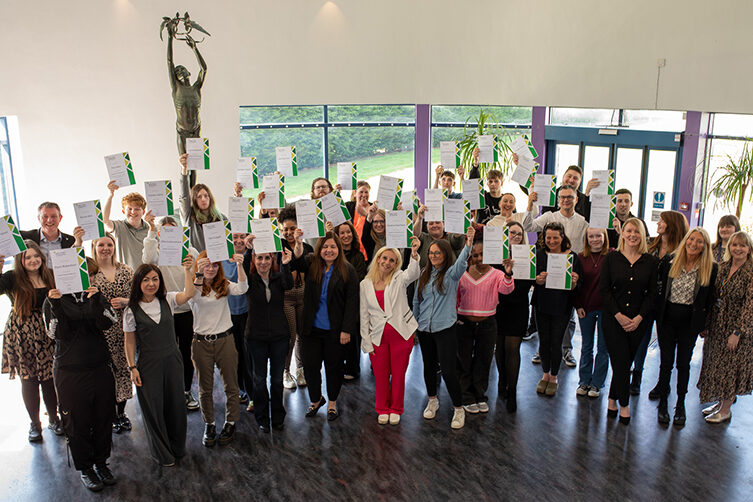Navigating the future: a collaborative approach to meeting the UK skills challenge

Skills and training are vital to powering UK growth and productivity, to greening the economy, addressing the needs of an aging population and making the UK agile in response to rapidly changing technology.
Yet for over a decade, the Government’s approach on skills has more or less disregarded the invaluable perspectives of those at the forefront of understanding the skills that we need to meet the challenges of the future.
But they have had no consistent way of feeding their insights into government policy on skills. Similarly, those best placed to see what is working and what is not – the college and training providers, trade unions and local and regional governments engaged in the day-to-day job of matching skills with market need – have had no consistent role in shaping the country’s approach.
Unified framework for collaboration
We welcome the House of Lords Committee Inquiry on Skills and Training Policy as an opportunity to kickstart a conversation about the skills policy we need for the future. That conversation needs to start now by setting out what a unified framework for dialogue and collaboration might bring to the UK’s skills ecosystem.
By coming together, we can put an end to the fragmented, short-term approach that has characterised the last decade and more. This collaborative approach starts with industry working with government at national and regional levels to agree a long-term national industrial strategy. Then we need to bring together the insights and analysis of employers to the table, via the 19 sector skills bodies, to understand the skills needed to deliver that strategy.
Crucially, we need to ensure that all those key institutions with a stake in skills development – trade unions, trade associations, college and training providers and regional economic development partnerships – are round the table when it comes to evaluating how our skills plans are working out in real-time. These are the institutions that will be able to tell us what is actually working, and what is not, and to ensure that plans are not a one size fits all, but are continuously evaluated, refined and evolved based on feedback from stakeholders.
This social partnership must be maintained into the future. We cannot hope to write down a skills plan at one moment in time, and assume it will be valid a year or two years later. Things are moving too fast for that. Our skills system needs to be able to move with the times, and to be flexible to the different needs of different industries so that all those with a stake in developing skills in Britain can stay flexible and agile enough to meet the need in front of them.
Responsive and agile skills strategy
In recent years, skills policy has focused on how to transition learners from school to the workforce. Of course, we have to get careers, technical qualifications and apprenticeships right. At The Skills Federation we believe it’s time for a new approach that listens to what businesses need and can respond to the real and fast-changing needs of industry. We want to see school leavers enter the workforce with internationally recognised qualifications that provide the foundation for their future careers. We also want increased flexibilities in apprenticeships so they work better for small businesses and are relevant to the sectors that increasingly dominate the 21st century UK economy (for example, creative, digital and public services).
But we can’t just think about school leavers. By supporting the existing workforce to develop new skills we can ensure UK industries keep pace with fast-changing technology, a rapidly aging population, and grasp the opportunity to become a leader in the low-carbon jobs of the future.
That’s why we need proper industry skills frameworks. Developing the workforce well requires understanding how individual employees can be motivated to fit training and upskilling into their complex lives. They need to know what qualifications and courses are available to them, and why it is so important to take these up.
And employers, particularly smaller firms, need the right set of incentives in place to play their part. A more flexible skills levy, including but not exclusively focused on apprenticeships, would allow employers to continually update their training offers to meet the real needs of the moment.
All this is possible, as long as policymakers recognise both the urgency of meeting the skills challenge so the UK can thrive in a rapidly changing context; and the need to bring those with the best insight round the table.
Exciting times lie ahead for the skills sector as we look ahead to the next general election. Working together, we can tackle the scale of the skills shortage and set out a vision for a world leading skills eco-system to meet current and future skill needs and fuel UK growth and productivity.
Dame Julie Mellor, Chair of The Skills Federation (also known as the Federation for Industry Sector Skills and Standards (FISSS)
The Skills Federation brings together the shared perspective of different industries on how the UK can build a workforce able to meet our skills needs. It represents 19 employer led sector skills bodies, encompassing more than 150,000 employers across the UK.











Responses